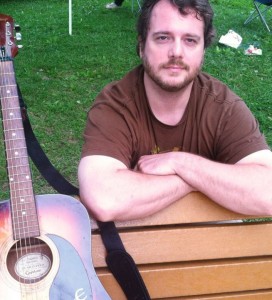Erik Young has very kindly provided us with this fascinating article about dealing with the emotions of being the parent of a child with autism.. I have to say this is a must read article for all of us with children with ASD.
As he says “Erik specializes in working with children and teens diagnosed with autism, intellectual disability and behavior disorders. He was a clinician for Devereux for over 13 years before he started his private practice. Eleven years ago, Erik and his wife decided to try to take what they know worked in the clinical setting and apply it at home. To this end, they started to provide foster care for special needs children. The result has been a sometimes frustrating, but always enlightening and wonderful roller coaster ride.”
To find out more about his services or to schedule a free consultation go to: www.erikyoungcounseling.com
I. A confession…
It’s almost Valentine’s Day and, of course, I’m thinking about how much I love my two autistic boys. Originally, I was going to write about the different ways my boys show affection and love, but that’s not where my head keeps going. No, I keep thinking about the crazy, strong and often contradictory motions that come with loving an autistic child.
You see, while I love my boys with all my heart, there are times that I also really kind of hate them.
There. I said it! I’ve had what can be labeled as hate in my heart for a child. Even just thinking about it brings on a deep sense of shame…let alone putting it out there for the whole internet to see. Here’s the thing, I never shared this with anybody. Here I am, father, therapist, special needs parenting expert…hating a child? What would people say? So, I kept my dark secret.
Then one day I was working with a parent on how to manage her child’s meltdowns. She broke into tears in the session and confessed that she felt shame that when he was in the depths of his meltdowns she felt hate for her child. All of a sudden, I wondered if I wasn’t alone. The very next day, another therapist friend of mine recounted a similar story of one of his clients confessing that they both hated and loved their child. He even went on to say he had had those feelings himself toward his kids. All of a sudden, my dark secret that nobody could understand started looking like a very common situation for parents of exceptional children (perhaps even all parents).
II. Love and hate
I then started querying my clients carefully and compassionately. Overwhelmingly I found that they not only shared this love/hate dichotomy, but that they almost all universally felt shame over these feelings and kept that shame to themselves. What must this be doing to their self-esteem and stress levels? Sure, there is this idea that good parents love their children unconditionally. Does this also mean that we can’t be upset and hurt by our children’s poor behaviors? Can we not be frustrated and at our wits end? Does this mean we are bad parents?
In my many conversations with my clients, friends and colleagues, I came to the following conclusions:
- If this is as common as it seems, then it’s probably not a bad thing.
- “Hate” is probably the wrong label to apply to feelings that arise from our frustration.
- These negative feelings, while painful, are based in love are nothing of which to be ashamed.
Feelings are ALWAYS true. If you are angry….you’re angry. That simply means that something is happening in your world about which you feel angry.
The emotion itself is neither good nor bad. It simply is.
The problems arise from how we express anger (or any other emotions). So, when your child is behaving in a way that wears you out, upsets you, pushes your buttons….it’s normal to feel frustrated and angry. It might even feel like hate.
As long as you process and express that emotion in a positive, constructive manner, all is well.
In fact, a lack of feeling indicates a lack of connection and love for your child. The truly dangerous situation is when you don’t care enough to get angry or feel. The fact that your child can get you angry means you love them (ironic, no?).
I don’t even think, at this point, that “hate” is the right label for these complex emotions we parents experience. For me, deep down, the problem is that my child is struggling or hurting and I am struggling to be a “good parent” and make it better. In the face of my perceived helplessness, I become despondent and frustrated. So really, the issue is not my child’s behavior (and how I perceive my child) but the issue is my inability to fix what is most likely an unfixable problem (at least in that moment). It’s MY issue…not my child’s. I don’t hate my child, but I’m feeling helpless. No parent I know likes to feel that way..and you know what? That complex interaction of emotions is most DEFINITELY based in love.
III. Tips for coping with strong emotions in you and your child
So, I’m sure you’re thinking, great… but what do I do when I “hate” my child? Here are some tips to manage your “big emotions.” These re things you can also teach to your child.
- Be gentle with yourself. Let yourself feel the big emotions, but know that they are normal. No need to make matters worse by beating yourself up. The fact that you feel means you love.
- Name those emotions. If you can do that you have, without even thinking about it, helped your “thinking brain” keep you from being “hi-jacked” by what you are feeling.
- Feel, don’t act. Let the emotions run their course…but don’t act hastily on them. The crisis will pass.
- Don’t take it personally. Whatever your child is doing, don’t take it personally. Chances are that its not about you…but about something they are struggling to cope with. What they may be doing to you is because you are a safe person to “vent” at.
- Breathe, Don’t panic. Breathing activates the relaxation response and helps reduce anxiety. It can keep our brains engaged and allow us to stay in a place where we can actually help rather than get swept away by big emotions.
- Do something physical. Take a walk, chop some wood…something to burn the energy that strong emotions can bring to us. The exercise also helps the mind to think more clearly.
- Share. Find trusted friends, family therapists or whatever and share your struggles and your feelings. Put it out there. You are not alone and you don’t have to struggle alone. Sharing the load makes t easier to bear.

